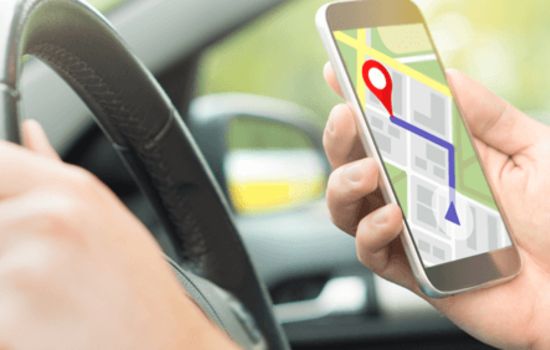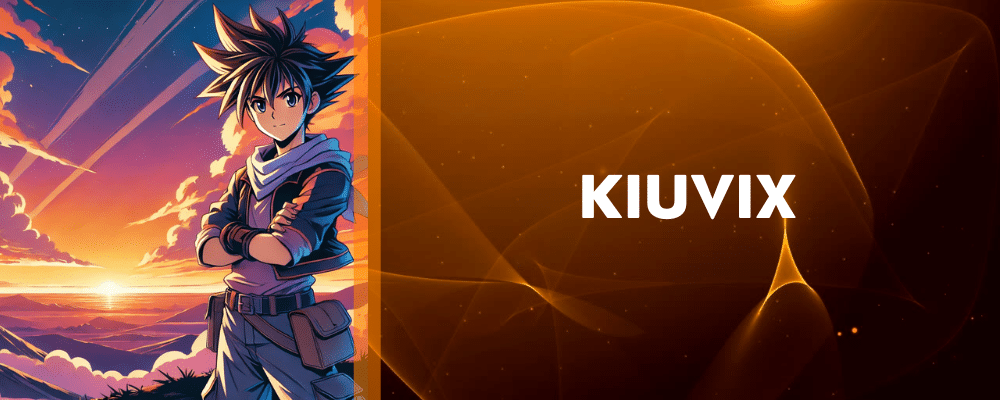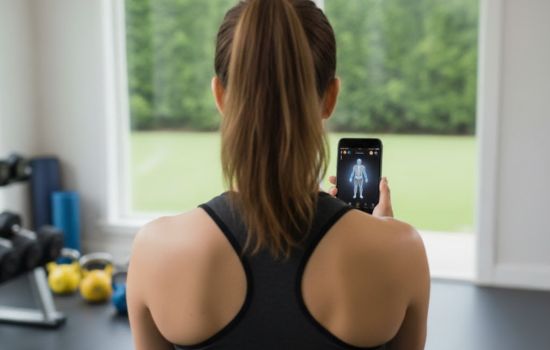Advertisements
Copenhagen, 2022. At a private conference of professional travelers, someone asked a question that changed everything:
“How many of you have had a life-changing travel experience because you got lost?”
All hands went up.
Second question: “When was the last time you allowed yourself to truly lose yourself?”
Advertisements
Awkward silence. Technology had killed something magical without us even realizing it.
Advertisements
See also
- The Best Apps to Get Pregnant
- Watch Free Movies: The Ultimate Guide
- Memories of other lives
- Identify plants with your mobile
- What if traveling doesn't require selling a kidney?
The Lost Art of Getting Productively Lost
The Difference Between Being Lost and Exploring
Novice travelers see getting lost as failure. Veterans see it as pure opportunity.
But there is a crucial difference: being lost without resources versus being lost with smart preparation.
The Modern Traveler's Paradox
We have instant access to information about any corner of the planet, but We have lost the ability to discover spontaneously.
Real-time GPS gets us efficiently from point A to point B, but deprives us of points C, D, E, F that could completely change our travel experience.
The Secrets Travel Bloggers Don't Share
Have you noticed that the best travel stories always include moments of disorientation that led to incredible discoveries?
It's not a coincidence. It's a method.
Experienced travelers deliberately cultivate situations where they can “lose themselves” in a way that controlled and safe.
Organic Maps: The True Explorer's Companion
Organic Maps understands something that big tech corporations have forgotten: the value of accidental discovery.
The Philosophy of Less Control, More Adventure
While Google Maps optimizes every second of your trip, Organic Maps gives you the basic tools and allows you to write your own story.
Why Do Explorers Prefer Organic Maps?
1. Without Manipulative Algorithms
It doesn't suggest routes based on what generates the most data for Google. It shows you the actual terrain and lets you decide.
2. Genuine Community Maps
The data comes from OpenStreetMap, powered by real travelers who have walked those trails, not corporate algorithms.
3. Works Perfectly Without Signal
In remote places where real adventures happen, Organic Maps keeps working when all else fails.
4. Respect your Discovery Process
It doesn't bombard you with unnecessary information. It gives you clear maps that allow your intuition and curiosity to guide the experience.
The OpenStreetMap Community: Collective Wisdom
Imagine maps created by:
- Mountaineers who know every secret trail
- Locals who know where the best authentic food is
- Travelers who have marked hidden gems
- Communities that share knowledge without a commercial agenda
Is real adventure crowdsourcing.
Maps.me: The Veteran Who Has Seen It All
Maps.me It's like that seasoned traveler who has been to 80 countries and always has amazing stories.
The Reliability That Only Years Give
Maps.me has been the silent companion of millions of adventures. It's worked in the Sahara desert, the Himalayan mountains, the Amazon rainforest, and the chaotic cities of Asia.
Why Do Hardcore Adventurers Trust Maps.me?
It Works When It Matters
In extreme situations, when all else fails, Maps.me remains your trusted ally.
Ultra-Efficient Vector Maps
It takes up minimal space but offers maximum detail. Perfect for long trips with limited storage.
Multi-Modal Navigation
Optimized for walking, biking, driving, and public transit. Adaptable to any travel style.
Predictable Interface
It doesn't change drastically with updates. Once you master it, it's a tool for life.
The Philosophy of Intelligent Backup
Maps.me isn't trying to be the sexiest app. It's trying to be the most indispensable when you need it most.
It's like carrying a Swiss Army knife: simple, functional, reliable.
Google Maps: The Overprotective Tour Guide
Google Maps It's like that tour guide who takes you to amazing places but never lets you explore on your own.
The Comfort That Kills Adventure
Google Maps is so efficient that it completely eliminates the productive friction of the trip.
What You Gain and Lose with Google Maps
Desire:
- Total efficiency in time and route
- Real-time traffic and schedule information
- Seamless integration with other Google services
- Instant reviews of restaurants and attractions
You lose:
- Accidental discoveries on alternative routes
- Spontaneous conversations asking for directions
- Development of personal spatial intuition
- The satisfaction of navigating using your intelligence
Offline Mode: Digital Life Insurance
Google Maps offline is like life insurance: you hope you never need it, but it's reassuring to know it's there.
Strategic Limitations:
- Predefined areas only (you cannot download custom routes)
- Reduced functionality without internet (no full voice navigation)
- Maps that expire automatically (forcing you to reconnect regularly)
Is calculated generosity: enough for emergencies, not enough for total independence.
The Psychology of the Dependent vs. Independent Traveler
The Profile of the Anxious Traveler
Typical characteristics:
- Plan every minute of your itinerary before you travel.
- He gets stressed when he loses internet signal
- Avoid places without mobile coverage
- Your travel photos are identical to millions of others
Result: Efficient but efficient travel predictable.
The Prepared Explorer Profile
Distinctive features:
- Plan the essentials, leave room for improvisation
- See the loss of signal as an opportunity for adventure
- Actively seek out remote and authentic places
- Their travel stories are unique and unexpected.
Result: Transformative journeys and memorable.
The Neuroscience of Adventure
When you navigate unfamiliar territory without digital guidance, your brain activates:
- Creativity to solve spatial problems
- Memory to remember landmarks
- Intuition to evaluate addresses
- Trust to make independent decisions
Is high-level brain gymnastics.
The Science of Accidental Discovery
Serendipity: It's Not a Coincidence, It's Preparation
The most important discoveries of humanity have been production accidents: penicillin, X-rays, America, post-it notes.
Ultra-precise GPS eliminates the possibility of serendipity when traveling.
The Exploration Algorithm
Traditional travel formula:
Rigid planning → Perfect execution → Predictable experience
Explorer's formula:
Basic Preparation → Adaptive Navigation → Unexpected Discovery
The “Adjacent Possible” Phenomenon
Scientific term that describes how the best opportunities are always one step to the side from where you were planning to go.
GPS takes you exactly where you wanted to go. Flexible offline browsing exposes you to the “adjacent possible”.
The Future of Conscious Travel
Slow Travel: The Anti-Speed Revolution
The future of travel isn't about getting to more places faster. It's about experience fewer places more deeply.
Technology that Empowers Exploration
Contextual AI: Systems that give you information when you ask for it, not constantly
Educational Augmented Reality: Tools that enrich your perception of the environment without dominating it
Decentralized Networks: Platforms where travelers share discoveries without manipulative algorithms
Predictive Navigation: Apps that anticipate basic needs but respect your decision-making autonomy
The Global Community of Conscious Explorers
Growing movement of travelers who prioritize:
- Authenticity on efficiency
- Discovery upon confirmation
- Human connection on digital comfort
- Transformative experiences about destination collection

Conclusion
The best trips of your life don't appear on any "Top 10 Destinations" list. They aren't optimized by algorithms. They don't have millions of reviews from other travelers.
They are waiting to be discovered by you.
Organic Maps offers you the purity of community browsing without a corporate agenda. Maps.me It gives you the reliability of a veteran that never fails. Google Maps gives you the power of connectivity when you need it.
But the most powerful tool for true adventure isn't in any app. It's in your willingness to lose yourself productively.
The future of travel isn't more digital efficiency. It's more human consciousness. Greater authentic connection with places and people. Greater confidence in your ability to navigate the world using a smart combination of technology and intuition.
The most important map you can create is the map of your own courage to explore the unknown.
Offline browsing is not just a technical feature. It is a tool of personal freedom.
In a world where every experience is pre-optimized by algorithms, maintaining your ability to consciously lose yourself is an act of creative rebellion.
Are you ready to rediscover the lost art of real adventure?
Next time you travel, download offline maps and turn off automatic directions for a few hours.
Your next big story is waiting somewhere you never planned to go.




